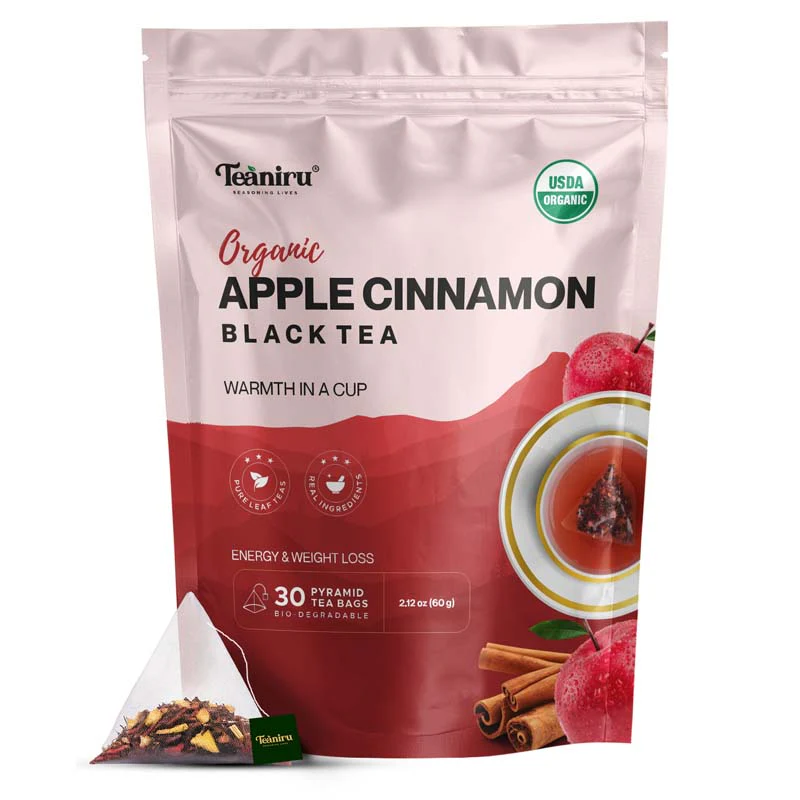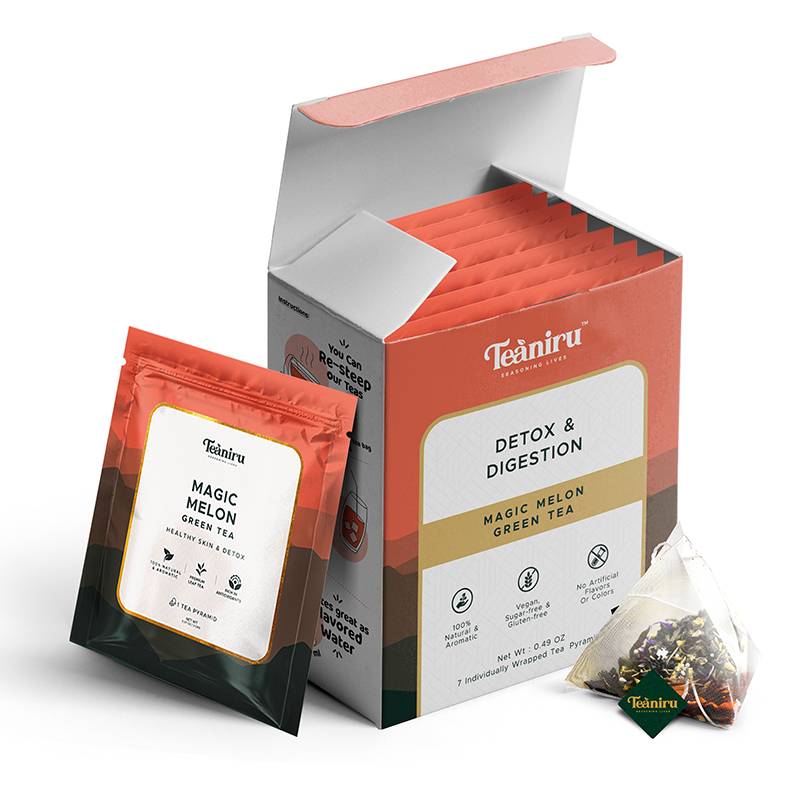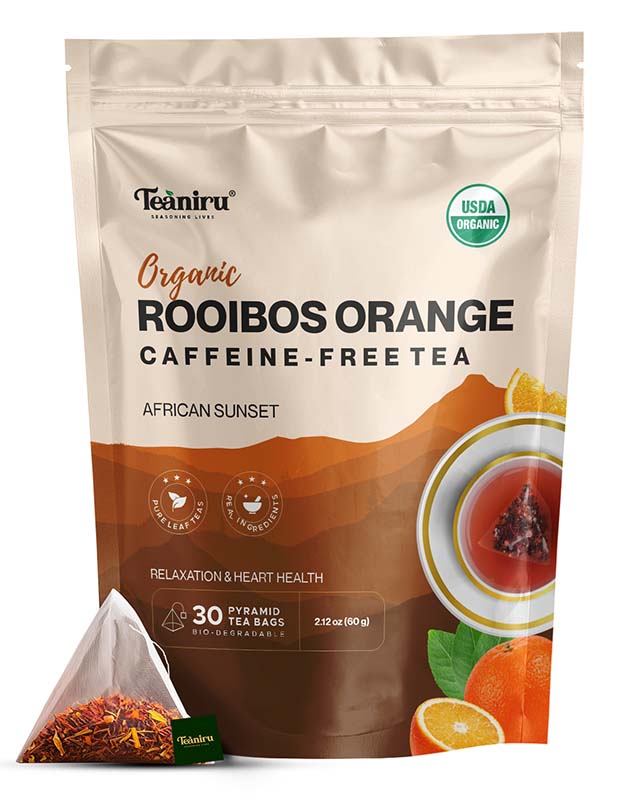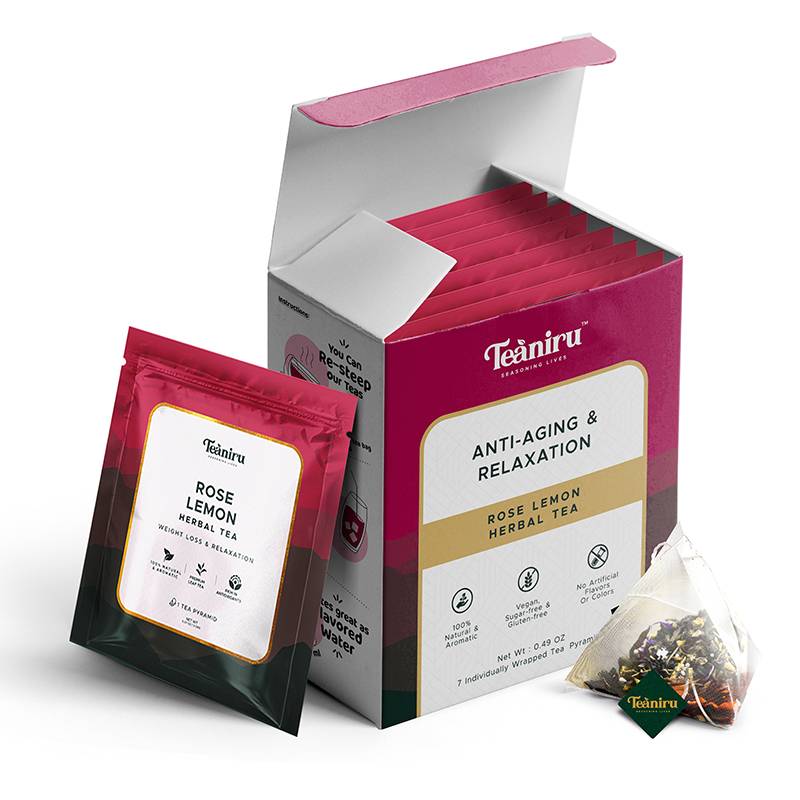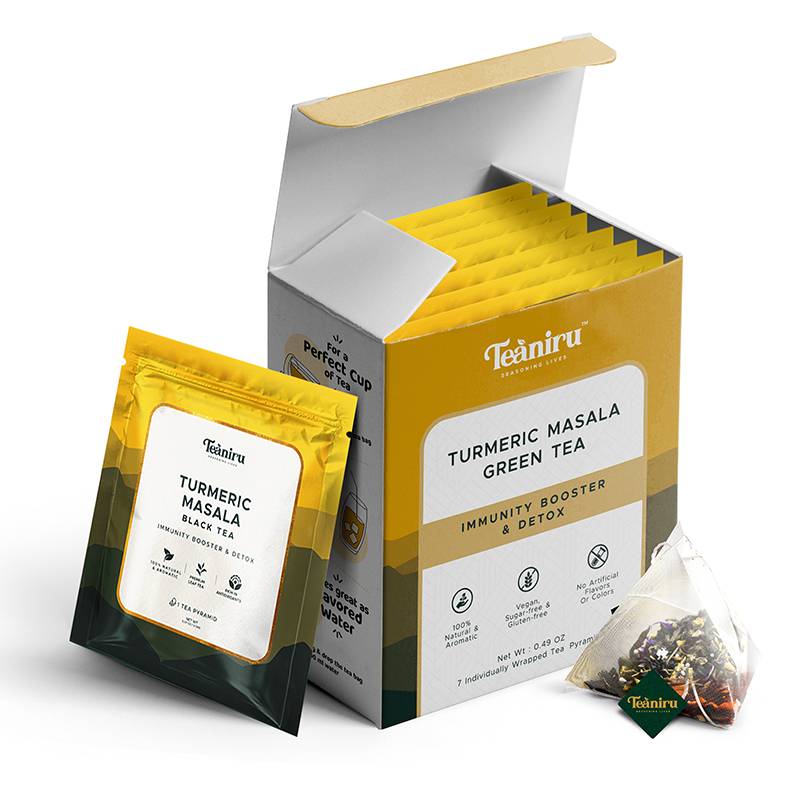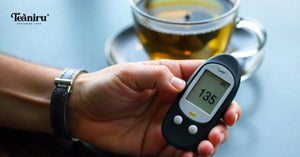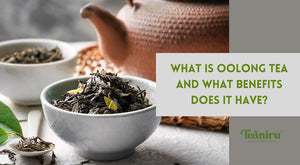You may also like
Green tea is renowned for its numerous health benefits, but its caffeine content can be a concern for some, hindering them from enjoying its goodness. This has led to the rise of decaf green tea, a popular alternative that offers the taste and potential health benefits of green tea without the caffeine jitters. But is decaf green tea truly a healthy choice? Let's delve into the world of decaf green tea, exploring its pros and cons, and its potential health benefits, and answer some frequently asked questions.
Table of contents
1. Decaf Green Tea: Pros and Cons
2. Health benefits of decaf green tea
3. How much caffeine is in decaf green tea
4. Is green tea decaffeinated naturally?
5. Decaffeination Process of Green Tea
6. Difference Between Decaf Green Tea and Regular Green Tea
7. Side Effects of Decaf Green Tea
8. Conclusion
Decaf Green Tea: Pros and Cons
Pros
- Reduced Caffeine: The primary advantage of decaf green tea is its significantly lower caffeine content compared to regular green tea. This allows individuals sensitive to caffeine or seeking to limit their intake to still enjoy the benefits of green tea.
- Hydrating Beverage: Like regular green tea, decaf green tea contributes to your daily fluid intake and keeps you hydrated, an essential component of overall health.
- Flavorful Option: Decaffeination doesn't significantly alter the characteristic flavor profile of green tea, making it a delicious and refreshing drink.
Cons
- Lower Antioxidant Content: The decaffeination process can sometimes reduce the amount of beneficial antioxidants present in green tea. However, the exact amount of reduction depends on the decaffeination method used.
- Potential for Weaker Taste: While the typical taste remains, decaffeination can slightly affect the flavor, making decaf green tea sometimes less robust than regular green tea.
- Limited Research: While research on decaf green tea is ongoing, some potential benefits haven't been as extensively studied compared to regular green tea.
Health benefits of decaf green tea
Decaffeinated green tea is a great option for those who want to enjoy thehealth benefits of green tea without caffeine.
While it may not have the same benefits as regular green tea, decaf green tea still contains beneficial compounds such as antioxidants and polyphenols that can help protect against various health conditions.
If you're looking to cut down on caffeine, decaf green tea is a solid choice. It provides many of the same health benefits as regular green tea, such as boosting your immune system and reducing your risk of chronic diseases, but with less caffeine.
So, it's a great way to incorporate green tea into your diet without the jitters or sleepless nights that caffeine can cause.
While decaf green tea might not boast the full spectrum of benefits offered by regular green tea, it still packs a healthy punch.
1. Weight Management:
Green tea contains natural compounds called catechins, which are believed to have fat-burning properties.
These catechins are antioxidants that can help increase metabolism and stimulate thermogenesis, which is the process of generating heat in the body.
This increase in metabolism and thermogenesis can help the body burn more calories, potentially leading to weight loss.
While green tea contains caffeine, which can also help increase metabolism and stimulate thermogenesis, some studies suggest that the catechins in green tea are the primary source of its weight loss benefits.
Decaffeinated green tea still contains these catechins, so it may still have some potential to help with weight loss.
Some studies say that decaf green tea might help with weight loss. For instance, one study found that decaf green tea extract helped obese adults lose weight and body fat.
Another study on rats showed that decaf green tea extract reduced genes related to fat production and storage. So, it seems like decaf green tea could be a good option if you're looking to shed some pounds.
However, as mentioned above, the process of decaffeination can remove some of the catechins and other beneficial compounds from green tea, which could potentially reduce its weight loss effects.
So while decaffeinated green tea may still be helpful as part of a healthy diet and exercise routine, it may not be as effective for weight loss as regular green tea.
Decaf green tea may contribute to weight management by potentially boosting metabolism and promoting satiety. The antioxidants in green tea, even in its decaffeinated form, can aid in fat oxidation and calorie burning. Additionally, the polyphenols in green tea may help regulate appetite and enhance feelings of fullness.
However, it's important to remember that while decaf green tea can be a helpful addition to a weight loss regimen, it should be complemented by a balanced diet and regular exercise for sustainable results.
Read More : Green tea for weight loss
2. Antioxidant Power:
Decaf green tea still contains a range of antioxidants with potent free-radical-fighting properties. These antioxidants help shield your cells from oxidative damage caused by harmful molecules known as free radicals, thus potentially reducing the risk of chronic diseases such as heart disease, diabetes, and certain types of cancer.
Incorporating decaf green tea into your daily routine can be a simple way to boost your antioxidant intake and support overall health.
3. Diuretic Properties:
Did you know that decaf green tea may have mild diuretic effects? While green tea contains natural compounds that have diuretic properties, it's not as strong as other substances.
So, drinking decaf green tea in moderation is unlikely to cause significant fluid loss or dehydration.
In fact, the hydration benefits of green tea can actually help balance fluid levels in the body. So, if you're looking for a healthy and hydrating beverage, decaf green tea is a great option that won't leave you feeling parched.
Decaf green tea, similar to regular green tea, has a mild diuretic effect due to its caffeine content. While the caffeine content in decaf green tea is significantly lower than in regular green tea
it can still increase urine production and promote mild fluid loss. This diuretic effect may help alleviate bloating and reduce water retention, contributing to feelings of lightness and comfort.
4. Acid Reflux Relief:
Decaffeinated green tea may be a good choice for people with acid reflux, as caffeine can sometimes exacerbate symptoms of GERD (gastroesophageal reflux disease).
Green tea contains natural compounds called polyphenols, which have been shown to have anti-inflammatory and antioxidant effects that may help reduce symptoms of acid reflux.
However, it's important to note that some people with acid reflux may still experience symptoms after drinking green tea, even if it is decaffeinated.
This is because green tea contains other compounds, such as tannins and catechins, that can also contribute to acid reflux symptoms.
Some studies suggest that decaf green tea may help soothe symptoms of acid reflux due to its anti-inflammatory properties. The polyphenols found in green tea have been shown to exhibit anti-inflammatory effects, which may help reduce irritation and inflammation in the gastrointestinal tract.
However, it's essential to note that individual responses to decaf green tea may vary, and consulting a healthcare professional is recommended for persistent acid reflux symptoms.
5. Reduced Cancer Risk:
Research on the link between decaf green tea and cancer risk reduction is ongoing, but existing studies suggest potential benefits similar to those of regular green tea. The antioxidants and polyphenols present in decaf green tea, particularly EGCG, may help protect cells from DNA damage and inhibit the growth of cancerous cells.
Regular consumption of decaf green tea as part of a balanced diet and healthy lifestyle may contribute to reducing the risk of certain cancers, although more research is needed to confirm these findings conclusively.
6. Anti-inflammatory Properties:
Decaf green tea may possess anti-inflammatory properties attributed to its polyphenol content. These anti-inflammatory effects can help reduce inflammation throughout the body, potentially offering benefits for conditions such as arthritis, inflammatory bowel disease, and cardiovascular disease.
Incorporating decaf green tea into your daily routine can be a simple yet effective way to support overall health and well-being.
7. Heart Health:
While further research is needed to fully understand the effects of decaf green tea on heart health, some studies suggest potential benefits. The antioxidants and polyphenols in decaf green tea may help improve cholesterol levels by reducing LDL (bad) cholesterol and increasing HDL (good) cholesterol.
Additionally, decaf green tea may have a modest impact on lowering blood pressure, essential for maintaining cardiovascular health. Including decaf green tea as part of a heart-healthy diet may offer protective effects against heart disease and stroke.
8. Memory Function:
Preliminary research suggests that decaf green tea consumption may have positive effects on working memory and cognitive function. The caffeine and L-theanine content in green tea, even in its decaffeinated form, may enhance brain function and promote alertness.
However, more robust studies are needed to confirm these cognitive benefits definitively. Incorporating decaf green tea into your daily routine may support cognitive health and improve memory function over time.
9. Stress Relief:
While not a definitive solution for stress management, enjoying a warm cup of decaf green tea can be a calming and comforting ritual that promotes relaxation. The ritual of preparing and sipping tea can provide a moment of mindfulness and tranquility on a busy day, allowing you to unwind and alleviate stress.
Additionally, green tea has been shown to have relaxing effects on the mind and body, promoting a sense of calmness without causing drowsiness. Incorporating decaf green tea into your self-care routine can be a simple yet effective way to manage stress and promote overall well-being.
It's important to note that the research on the specific health benefits of decaf green tea is ongoing. While some studies show promising results, others are inconclusive. It's crucial to consult with your healthcare professional if you have any concerns or questions.
Is Decaf Green Tea good for you?
How much caffeine is in decaf green tea
Regular green tea typically contains around 35-70mg of caffeine per 8-ounce cup, although this can vary depending on factors such as the brewing method and the brand of tea.
Decaffeinated green tea, can contain about 2-4 mg of caffeine per tea bag. This is because the process of decaffeination removes some, but not all, of the caffeine from the tea leaves.
Decaffeinated green tea still contains some caffeine, but the amount is much lower than regular green tea.
It's worth noting that the caffeine content of tea can vary widely depending on factors such as the type of tea, the brewing method, and the brand.
Is green tea decaffeinated naturally?
No, green tea isn't naturally decaffeinated. Various methods, including water, carbon dioxide, and organic solvents, are used to remove caffeine from the leaves.
Decaffeination Process of Green Tea
There are three main processes used to decaffeinate green tea:
- Water decaffeination: This method uses hot water to extract caffeine from the leaves, followed by a filtration process to remove it.
- Carbon dioxide decaffeination: This process uses pressurized carbon dioxide to selectively remove caffeine from the leaves.
- Organic solvent decaffeination: This method uses solvents like methylene chloride to extract caffeine, which is then removed from the solvent.
While each method has its advantages and disadvantages, water and carbon dioxide decaffeination are generally considered the safest and most natural options. They minimize the risk of chemical residues and are generally considered gentler on the tea leaves.
Difference Between Decaf Green Tea and Regular Green Tea
|
Aspect |
Decaf Green Tea |
Green Tea |
|
Caffeine Content |
Significantly lower or no caffeine content |
Contains caffeine |
|
Production Process |
Subjected to a decaffeination process |
Not subjected to the decaffeination process |
|
Flavor |
Slightly altered flavor due to the decaffeination process |
Natural green tea flavor |
|
Health Benefits |
Retains most of the health benefits of green tea, except for caffeine-related benefits |
Contains caffeine, which may provide certain health benefits like improved alertness and metabolism |
|
Availability |
Less common than regular green tea |
Widely available |
|
Price |
Often slightly more expensive due to additional processing |
Usually less expensive |
The primary difference between decaf and regular green tea lies in their caffeine content. Decaf green tea has significantly less caffeine, typically ranging from 2-8 mg per cup, compared to 28-40 mg in regular green tea. This difference can affect the taste and potential health benefits to some extent. Decaf green tea might have a slightly weaker flavor and potentially lower levels of certain antioxidants due to the decaffeination process.
Side Effects of Decaf Green Tea
Decaf green tea is generally considered safe for most individuals. However, some people might experience mild side effects like:
- Stomach upset: In rare cases, decaf green tea can cause mild stomach upset, especially on an empty stomach.
- Insomnia: While decaffeinated, some individuals might still experience a mild stimulant effect due to the presence of theanine, an amino acid found in green tea.
Decaf Green Tea FAQ
1. Does decaf green tea lower cholesterol?
Some studies suggest decaf green tea may contribute to improved cholesterol levels, but more research is needed to confirm this definitively.
2. What is the best time to drink decaf green tea?
There is no specific "best" time to drink decaf green tea. However, it's generally recommended to avoid consuming any caffeinated beverage, including decaf green tea, close to bedtime to avoid potential sleep disturbances.
In Conclusion: Decaf Green Tea is a Healthy Choice
Decaf green tea does offer a healthy alternative for those seeking to enjoy the taste and potential benefits of green tea without caffeine. But as it is, green tea has very little amount of caffeine and it is a better way to reap the natural benefits. If you are looking to enjoy caffeine-free options, it is advisable to try herbal teas which do not have caffeine at all. Remember, a healthy lifestyle with a balanced diet and regular exercise is crucial for overall well-being.
Read More about Green Teas:
